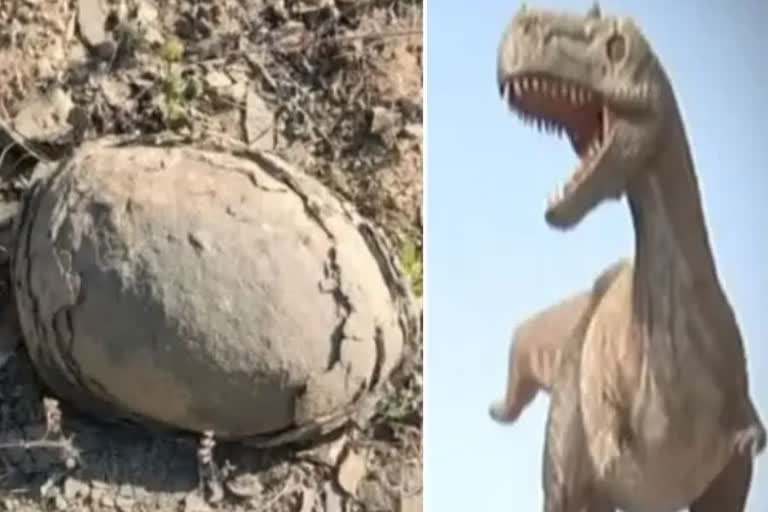Dhar (Madhya Pradesh):In what can be termed as the rarest of rare findings, a team of researchers from Delhi University has discovered an ‘egg-in-egg’ dinosaur egg from Madhya Pradesh, a probable first in fossil history. According to the researchers, the discovery is a “rare and important find” as no ‘ovum-in-ovo’ egg was found in reptiles until now.
The findings have been published in the latest issue of the journal Scientific Reports with the title "First ovum-in-ovo pathological titanosaurid egg throws light on the reproductive biology of sauropod dinosaurs". The abnormal titanosaurid dinosaur egg was discovered in the Bagh area in MP’s Dhar district and could provide important insights into whether dinosaurs had reproductive biology similar to that of turtles and lizards, or crocodiles and birds, their immediate cousins, the researchers said in a statement.
The Upper Cretaceous Lameta Formation of central India has been long known for the discovery of dinosaur fossils (both skeletal and egg remains). The authors documented a large number of titanosaurid sauropod nests near Padlya village close to Bagh town. While studying these nests, the researchers came across one ‘abnormal egg’.
The research team found a sauropod dinosaur nest consisting of 10 eggs including the abnormal egg which had two continuous and circular eggshell layers separated by a wide gap reminiscent of ovum-in-ovo (one egg inside another egg) pathology of birds, read the statement. The microstructure of the pathological egg as well as that of an adjacent egg in the same nest identified it with that of titanosaurid sauropod dinosaurs.
